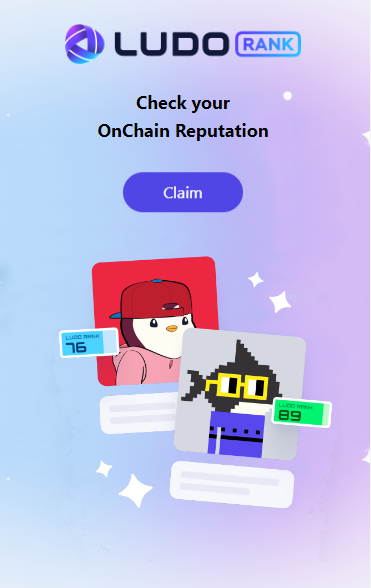Web3 Discovery
Web3: The Way to Mass Adoption
As the Web3 universe expands rapidly, it's filled with endless opportunities and innovations. Yet, for many, stepping into this space feels like navigating a vast, uncharted digital ocean.
Imagine you're looking for the next big thing in Web3, whether
it's an NFT, a DeFi project, or a groundbreaking dApp. But
here's the catch: every day, hundreds of projects launch, each
promising to be the next big breakthrough. How do you find the
one that matches your interests, goals, and values?
Simultaneously
with the growth, negative network effects of the Web3
ecosystem are starting to emerge. Negative network effects
occur when the increasing size or activity of a network leads
to decreased value or usability for its participants. In the
context of Web3, these effects manifest as the following:
- Challenges in discovering new projects that are relevant for you.
- Increased difficulty with staying updated with opportunities from projects that you are invested in.
- As a new Web3 user, the risk that you are getting scammed exceeds 95% in your initial interactions.
In a single sentence: The Web3 Discovery is broken and is ultimately hindering user adoption and engagement.
The Current Status of Web3 Discovery
Most people rely on a mix of social media, influencer recommendations, and marketplace browsing to discover new Web3 projects. However, the main challenges faced during this search include:
- Time-consuming processes.
- Projects not aligning with current interests, leading to a mismatch between expectations and findings.
- The high risk of being scammed creates challenges for Web3 newcomers and seasoned users alike.
Many of us are spending money, time, and effort to make Web3 widely adopted. However, for it to truly reach the masses, we must first overcome the challenges highlighted above
Using marketplaces as the main way of discovering/finding new opportunities underscores a crucial distinction: it's akin to using eBay, Amazon, or Alibaba as search engines instead of marketplaces, underscoring the difference between seeking to discover and searching with the intent to purchase or acquire.
Pathways to Addressing Web3 Discovery Challenges:
As mentioned above we need solutions to counteract the
negative network effects impacting the Web3 space.
“The key to minimizing most negative network effects
is quality curation, which increases the chances of a happy
match between producer and consumer.”
by Geoffrey G. Parker
“Platform Revolution”
How Was Discovery Addressed in the Early Days of the
Internet?
In the early days of the internet, finding relevant information was a bit like searching for a needle in a haystack. Platforms like Yahoo, AOL, and Altavista tried to help users discover content, but they relied mainly on keyword searches. Google changed the game by introducing a clever algorithm called PageRank.
PageRank wasn't just about matching search terms with web pages. It ranked pages based on their authority or reputation. This meant that when you searched for something, you weren't just getting a bunch of pages that contained the words you typed; you were getting the most credible and trustworthy results.
Imagine you're looking for the best pizza place in town.
Instead of just listing every place that has the word "pizza"
on its website, Google's PageRank would prioritize
recommendations from well-respected food critics or popular
food blogs. This made your search much more efficient and
reliable.
Google's approach quickly made it the
go-to search engine. People trusted its results because they
were more likely to find what they were looking for. This
combination of semantic search (matching keywords) and
authority ranking made Google incredibly accurate and
useful.
Now, in the realm of Web3, where blockchain
technology is transforming how we interact online, reputation
is becoming even more important. Brian Armstrong, the founder
of Coinbase, has highlighted the potential of on-chain
reputation as a major opportunity, suggesting that reputation
is becoming the new currency. This means that in the future,
our online reputations could become like digital currency,
influencing how we interact and transact on the web.
On-Chain Reputation Applications
-
Lending: On-chain reputation can be used to evaluate the creditworthiness of borrowers in decentralized lending platforms. Those with a good reputation may have better access to loans or lower interest rates.
-
Ratings: Products, services, and even individuals can be rated based on their on-chain reputation, providing valuable feedback for users and fostering trust within the community.
-
Fraud Prevention: On-chain reputation can help identify and reduce fraudulent activities by flagging suspicious behavior or accounts.
- On-Chain Ads: These are the Web3 version of advertisements that compensate based on the on-chain actions of an address (user). Instead of relying solely on clicks or views, advertisers can target users with proven reputations, ensuring a higher likelihood of engagement.
The Solution to Fixing Broken Web3 Discovery:
Ludo: The Web3 Reputation-Driven Discovery Engine
Ludo's mission is to make the Web3 space accessible,
navigable, and safe for everyone. By focusing on reputation
and aligning opportunities with users' interests, Ludo
addresses the core challenges of Web3 discovery. This approach
enhances the user experience and fosters a healthier ecosystem
where quality and trust are paramount.
By
leveraging on-chain reputation, Ludo ensures that users are
connected with the most relevant and trustworthy content,
services, and opportunities within the Web3 landscape. Whether
it's discovering top-rated NFT projects, or connecting with
reputable service providers, and in in future finding the best
decentralized finance (DeFi) platforms, Ludo empowers users to
explore the decentralized web with confidence.
In summary, the integration of on-chain reputation into Web3 discovery not only enhances user experience but also promotes transparency, trust, and security in the decentralized ecosystem. Through platforms like Ludo, Web3 becomes more accessible, inclusive, and conducive to meaningful interactions and transactions.
Sounds Great! But,
What Exactly Is Ludo?








